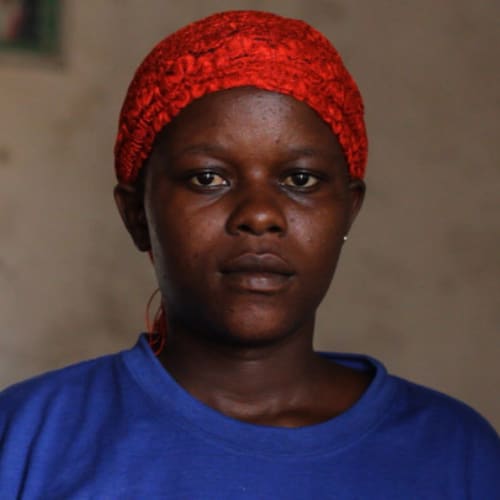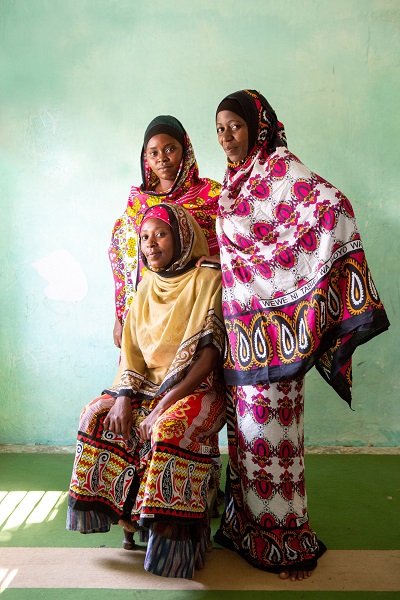The Lingering Harm of the Global Gag Rule

By Tessa Maulhardt and Jamie Vernaelde
Strained and fragile health systems in low- and middle-income countries are facing a double threat to sexual and reproductive health (SRH) outcomes: the current COVID-19 pandemic layered on top of the Trump-Pence administration’s harmful sexual and reproductive health and rights (SRHR) policies, including the massively expanded Global Gag Rule (GGR) and defunding of the United Nations Population Fund (UNFPA). These policies have restricted community access to lifesaving services, cut out qualified and highly skilled foreign nongovernmental organizations (NGOs), threatened health systems and impeded coordination with other donors and governments. Current U.S. foreign policy all but guarantees insufficient COVID-19 response at the country level, as the loss of U.S. global health assistance has devastated some of the best-placed SRH providers and put comprehensive health care further out of reach for the most vulnerable communities.
The Trump-Pence administration has weakened the United States as a leader and advocate for global health and SRHR. In addition to announcing plans for U.S. withdrawal from and the defunding of the World Health Organization amid the COVID-19 crisis, for four consecutive years President Trump has proposed dramatic cuts to the U.S. global health budget, including international family planning and reproductive health (FP/RH) programs. While Congress has once again ignored the president’s proposed cuts for fiscal year 2021 — which contained a nearly 60% reduction in FP/RH funding — through other policies, the administration has succeeded in rolling back SRHR and threatening global gains in health outcomes for women and girls.

For the last three and a half years, PAI has conducted fact-finding trips to document the harm caused by the GGR in countries across sub-Saharan Africa and Asia. Among other vast opportunity costs, the policy has resulted in: (1) loss of access to services for communities; (2) collapse of advocacy partnerships to improve health outcomes; and (3) wasted organizational time and resources on compliance rather than programs. New research from the Guttmacher Institute corroborates these findings, demonstrating that the policy detrimentally impacts SRH providers and advocates as well as critical public health partners around the world. A recent Lancet article further outlines negative GGR outcomes beyond SRH, such as undermined functioning of country health systems.
Before the pandemic, public health services in Burkina Faso had been hampered by limited resources, a six-month health worker strike and instability that has contributed to 840,000 displaced people out of a population of 20 million. In the regions most affected by conflict, Marie Stopes Burkina Faso and the International Planned Parenthood Federation Member Association, the Association Burkinabè pour le Bien-Être Familial (ABBEF), are critical SRH providers and key partners of the Ministry of Health. Additionally, UNFPA and Marie Stopes Burkina Faso were the front-line SRH responders to the displacement crisis. As UNFPA, Marie Stopes Burkina Faso and ABBEF have both been adversely impacted by U.S. foreign policy. This perfect storm demonstrates how U.S. investments have become less effective, not only for expanding SRH access, but also increasing population resilience and addressing rising insecurity. The added effects of COVID-19 will be devastating in crowded displacement camps, where concerns for gender-based violence, pregnancy complications and unsafe abortions will result in compounding dangers for women and girls.
In Nigeria, the interaction of U.S. policies and funding decisions has had outsized ramifications, particularly for SRH supply chains. As foreign NGOs lose access to U.S. funding and U.S.-donated contraceptive supplies due to the GGR, they have scaled back services — pushing more clients to public sector facilities and increasing demand for commodities procured by UNFPA. The U.S. defunding of UNFPA places a strain on the agency and its UNFPA Supplies program, which has raised alarms among advocates and providers in Nigeria given the agency’s central role in contraceptive security. This threat now comes at a time when COVID-19 has interrupted global manufacturing and shipment of contraception and other essential SRH medicines. Any further reductions in UNFPA’s capacity will cascade down, hitting hardest the organizations working with the most vulnerable populations and severely disrupting health supplies.
At the country level, government containment measures for COVID-19 are already causing a shadow pandemic of poor SRHR outcomes. UNFPA estimates that lockdown-related disruptions in SRH service delivery over six months could leave 47 million women unable to use modern voluntary contraceptives, leading to seven million additional unintended pregnancies and 31 million additional cases of gender-based violence. The Johns Hopkins Bloomberg School of Public Health projects that suspended routine health care and decreased access to food will lead to devastating increases in child and maternal deaths. PAI has called upon local civil society to ensure that their governments’ responses prioritize SRHR and account for existing gender and social inequalities to combat COVID-19 and this shadow pandemic.
Preventing health systems disruptions in the global COVID-19 response necessitates multistakeholder coordination, particularly with investments in SRH during and after the pandemic. However, as a result of the GGR and the defunding of UNFPA, U.S. foreign policy has already undermined coordination among foreign NGO partners, bilateral and multilateral agencies and national governments. The Trump-Pence administration is now also preventing the United States — the world’s largest global health donor — from participating in cohesive, international COVID-19 measures that promote SRHR.
In fact, while a global pandemic is the worst time to hinder global health and SRH care, the administration has demanded that the United Nations remove any references to reproductive health from its humanitarian response plan to COVID-19. Additionally, if the U.S. government refuses to allow exemptions to the GGR for COVID-19 funds and reinstate funding to UNFPA, the most qualified partners will be left out of responses to the pandemic. The United States is failing as a global health leader and SRHR champion when it is needed most to protect women, girls, adolescents and other marginalized communities. As such, local governments and non-U.S. international donors must step up to ensure SRHR is not left behind during the era of COVID-19.
Stay informed about the issues impacting sexual and reproductive health and rights.